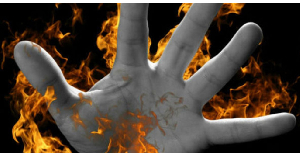Accra, Aug. 29, GNA - Organisations of civil society from across Africa have called on African governments not to accede to the request of the developed countries for further liberalisation at the up-coming World Trade Organisation (WTO) Ministerial Meeting in Hong Kong. A copy of an African declaration adopted in Accra and copied to the Conference in Hong Kong called on governments to resist being coerced into committing their existing liberalisation undertaken under International Monetary Fund / World Bank (IMF/WB) pressure.
The groups comprising trade unions, farmers organisations, women's and non-governmental organisations that met under the auspicious of the Third World Network-Africa, said the failure of African Heads to kick against this agenda of the developed nations would weaken the position of African countries in the WTO and they would not be able to reverse its adverse effects on them.
On services, the declaration said health, education, water, were fundamental rights, the access to which must be guaranteed to all and noted that the IMF and WB liberalisation dictates for profit motives took the rights out of the reach of the vast majority of Africans. "The deregulation and liberalisation have placed services in the hands of private mainly foreign, providers, and have made them subject to externally driven economic considerations, thereby undermining their role in the development of an integrated domestic economy."
At the Hong Kong meeting, the groups affirmed that the developed countries would seek to further entrench this process by pressurising Africa and other developing countries to open up more service sectors and commit these under the General Agreement on Trade in Services. The group demanded that African countries should not undertake any further reduction in their tariffs for agricultural products as well as not to bind their tariffs at current levels.
"In addition, they must have the right to use measures to further strengthen their ability to protect their domestic producers as deemed necessary, including the special safeguard mechanism and the right to designate special products.
"At the same time, the developed countries must eliminate all their subsidies which enable them to dump artificially cheap products in our markets and in global markets, and devastate our economies," they said.
The groups said the proposals by Africa and other developing countries to strengthen their right to special and differential treatment within WTO rules, as well as to resolve the problems of implementation with the existing agreements have been effectively marginalized.
Those issues according to them were on the verge of disappearing from the Doha work programme and they thus demanded the re-instatement of the essential development issues to the forefront of the WTO negotiations.
The developed countries, they said, particularly the US and EU, have resorted to bilateral and regional trade agreements with other developing countries to attain the objectives that they had not been able to attain in the WTO.
In the context of the Economic Partnership Agreement (EPA) negotiations, the groups said the EU was attempting to impose the so-called Singapore issues on African countries, and to get these countries to grant market access to European goods and services far beyond the WTO requirements and undermine Africa's economies and their efforts at regional integration.
They said African governments must ensure that their national positions and mandates for the Hong Kong meeting were elaborated through national debates and discussions with the participation of people's organisations, as well as national parliaments. 29 Aug. 05
General News of Monday, 29 August 2005
Source: GNA












